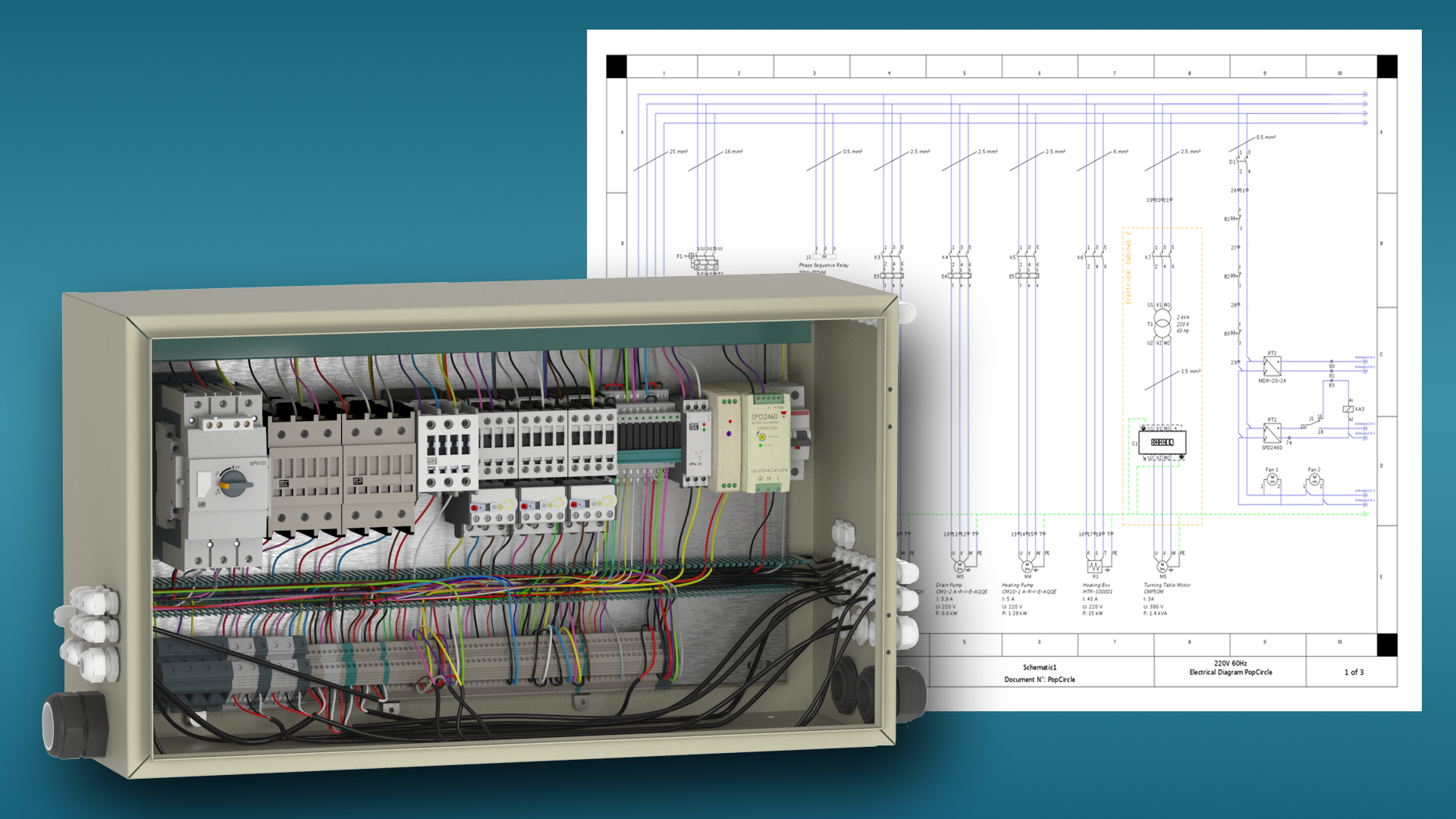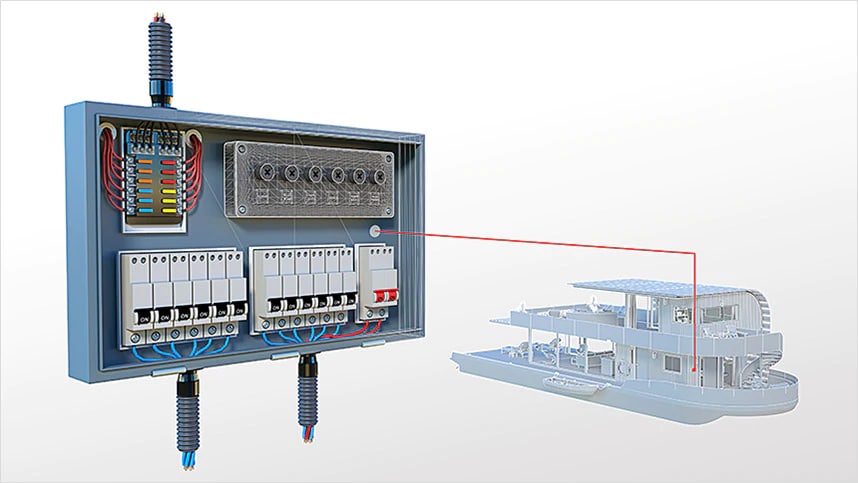Tailored Electrical Load Calculation Services for Commercial and Industrial Buildings
Wiki Article
Professional Electric Design Providers for Safe and Effective Equipments
The role of specialist electrical design solutions is increasingly paramount in making certain the safety and effectiveness of contemporary systems that create the backbone of building facilities. As we examine these elements, the effect on future advancements in electrical systems warrants cautious factor to consider.Importance of Electric Design
One can not underestimate the importance of electrical design in any building or restoration job. Efficient electrical design works as the foundation of a building's facilities, making sure the reliable and risk-free distribution of electrical power. It is critical for fulfilling both regulatory and practical requirements, thereby reducing the threat of threats such as electrical fires and equipment failures. A well-structured electrical design adds to the total power effectiveness of a facility, which can result in substantial expense savings with time.Furthermore, it accommodates the expanding need for sophisticated technologies and clever systems that boost customer experience and functional efficiency - electrical design services. By incorporating energy-efficient lights, reliable power resources, and proper circuit layouts, electric design assists in the seamless operation of devices and equipment important to daily activities
Moreover, comprehensive electrical design takes into consideration future scalability, permitting very easy upgrades and modifications as innovation develops. This forward-thinking approach not just optimizes the current system but additionally protects the investment made in the infrastructure. Basically, careful focus to electric design is indispensable for accomplishing a successful, sustainable, and risk-free setting in any building and construction or remodelling undertaking.
Trick Parts of Design Services
A thorough electric design solution encompasses numerous vital components that guarantee the trustworthy and reliable implementation of electric systems. At the foundation is the analysis of project demands, that includes understanding client specifications, governing criteria, and ecological factors to consider. This initial phase is essential for tailoring the design to fulfill specific requirements.Next, accurate load calculations are performed to establish the electrical needs of the system. This involves reviewing the power requirements of all linked gadgets and making sure that the design can suit possible future developments.
The option of appropriate materials and equipment is one more crucial element. This consists of picking high-quality parts that abide by market requirements and fit the project's financial constraints.
Moreover, thorough schematic layouts and layouts are established to imagine the system's design, assisting in clear interaction among stakeholders.
Finally, an extensive testimonial and recognition process is vital to make certain that the design meets safety and security criteria and functional effectiveness before application. By integrating these components, electrical design services develop robust systems that work properly and safely within their intended settings.
Benefits of Professional Proficiency
Engaging expert knowledge in electric design services brings considerable benefits that boost job outcomes. Firstly, professionals possess thorough understanding of the most up to date modern technologies, tools, and methods, guaranteeing that designs are not just ingenious but also functional and reliable. Their experience allows for the recognition of prospective problems early in the design procedure, lessening expensive revisions and delays.Additionally, professional electrical designers are experienced at have a peek at this site enhancing system efficiency while adhering to finest practices (electrical design services). They utilize innovative simulation and modeling methods to predict system behavior under numerous problems, causing more reliable and dependable layouts. This optimization translates to power financial savings and enhanced functional effectiveness, which are critical in today's sustainability-focused atmosphere
Cooperation is another key advantage; skilled designers function very closely with other professionals-- designers, service providers, and engineers-- to make certain that all elements of the task line up effortlessly. This interdisciplinary method promotes effective interaction and ultimately causes a practical and natural electric system.
Regulatory Compliance Factors To Consider

Experts in electric design should have a detailed understanding of these policies, ensuring that all parts meet needed safety and security and efficiency requirements. Routine updates and modifications to guidelines require recurring education and awareness within the area. Non-compliance can result in expensive delays, redesigns, and lawful effects, adversely affecting job timelines and spending plans.
Integrating conformity factors to consider from the outset of a project allows developers to determine potential problems early, promoting smoother approvals and assessments. Involving professional electrical design services ensures that all regulative criteria their explanation are fulfilled, thus decreasing threats and promoting a much safer environment for both operators and customers. Inevitably, the concentrate on governing compliance fosters count on and reliability, crucial elements in the effective distribution of electrical design jobs.
Future Trends in Electrical Design

An additional emerging trend is the emphasis on renewable resource sources. As the demand for sustainable solutions grows, electric design will progressively incorporate solar, wind, and energy storage systems. This change not only straightens with international sustainability goals yet also enhances power resilience.
In addition, the increase of electrical automobiles (EVs) demands a rethinking of electric framework, prompting designs that fit EV charging terminals in business and residential spaces. Innovations in energy-efficient components and materials will continue to play a critical role in dig this lowering power consumption and decreasing ecological effect.
Finally, the adoption of digital twins in electric design enables enhanced simulation and modeling, enabling engineers to visualize and enhance systems prior to implementation. These fads collectively indicate a transformative shift toward much more smart, lasting, and efficient electrical design practices.
Conclusion
In final thought, expert electrical design solutions play a critical duty in guaranteeing the safety and efficiency of building facilities. By prioritizing thorough evaluations, accurate lots estimations, and the usage of premium products, these services help with compliance with regulatory requirements and reduce risks connected with electric failures. The integration of sustainable techniques and innovative innovations boosts system efficiency and integrity, ultimately adding to an extra energy-efficient and durable developed environment.The function of professional electrical design services is significantly vital in making certain the security and effectiveness of contemporary systems that form the foundation of structure infrastructure. Effective electrical design offers as the foundation of a building's facilities, ensuring the reliable and safe distribution of electric power.A detailed electrical design solution includes several vital elements that make certain the trustworthy and efficient application of electrical systems. Electric systems must conform with regional, state, and national codes, including the National Electric Code (NEC) in the United States, which sets the requirement for safe electrical design.
As the demand for sustainable solutions grows, electric design will progressively incorporate solar, wind, and energy storage space systems.
Report this wiki page